Archive
04 December 2019
Microchip for room temperature quantum internet
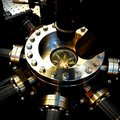
A key requirement for a future quantum internet is that it will be widely accessible and affordable. This requires the ability to prepare mechanical systems in their lowest possible energy state (the quantum ground state) without expensive cryogenics.
26 November 2019
Javier Alonso-Mora in various media
Researchers from TU Delft and MIT have developed an algorithm that - to a certain extent - can predict whether drivers behave socially or antisocial.
25 November 2019
Freek Broeren & Werner van de Sande in Engineers Online
Researchers from the Precision and Microsystems Engineering (PME) department of TU Delft have developed a scaling method that can be applied to any curved surface. This method has all kinds of potential applications, ranging from braces that can grow with children or stents for keeping blood vessels open to extendable furniture.
25 November 2019
Ruud Kortlever in Process Control
Interview Ruud Kortlever in Process Control
21 November 2019
‘Ruler-less measuring’ at crime scenes
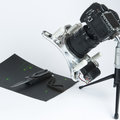
Researchers at TU Delft and the Netherlands Forensic Institute (NFI) have developed a new ‘ruler-less prototype’ that may make the use of a physical ruler at the crime scene redundant.
19 November 2019
Social behavior for autonomous vehicles by J. Alonso-Mora published in PNAS
Self-driving cars are coming. But for all their fancy sensors and intricate data-crunching abilities, even the most cutting-edge cars lack something that (almost) every 16-year-old with a learner’s permit has: social awareness.
18 November 2019
Predicting people’s driving personality

A team of researchers from MIT and TU Delft has developed a new system that sizes up drivers as selfish or selfless.
15 November 2019
How to Expand and Contract Curved Surfaces of all Shapes

Researchers at TU Delft have designed a dilation method that can be applied to any curved surface. The range of applications include medical braces for children, expandable furniture, or aortic stents.
06 November 2019
Research programmes Soft Robotics and Botanic Sensor networks at 4TU event
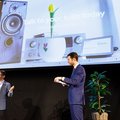
01 November 2019
Materials experts join the corrosion community in China
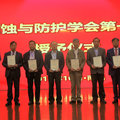
Arjan Mol, professor of Corrosion Technology and Electrochemistry, and Herman Terryn, part-time lecturer at the Department of Materials Science and Engineering, were the first international corrosion scientists to receive a Fellowship Award from the Chinese Society for Corrosion and Protection (CSCP) this month. The fellowship serves to highlight the potential of exchanging fundamental knowledge across continents and further reinforce collaboration with China.
29 October 2019
Dariu Gavrila receives IEEE ITS Outstanding Research Award 2019

Dariu Gavrila has received the Outstanding Research Award 2019 from the IEEE Intelligent Transportation Systems (ITS) Society for his work on "Active Vulnerable Road User Safety with focus on vision-based pedestrian and cyclist detection, motion modelling and path prediction".
29 October 2019
Cybernetics team wins award for best SMC journal paper
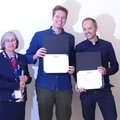
Max Mulder and his team received the Andrew P. Sage award at the IEEE Conference on Systems, Man and Cybernetics.
28 October 2019
Geeske Langejans in different media
21 October 2019
Neanderthal glue from the North Sea
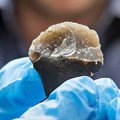
Scientific research has revealed that a flint tool cased in a tar-like substance is actually one of the few examples of the use of glue by Neanderthals.